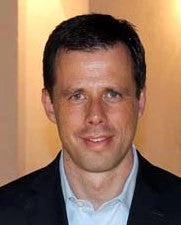 Collective action is necessary to reposition health in the evolving landscape of development priorities. Copyright: Dominic Chavez/World Bank
Collective action is necessary to reposition health in the evolving landscape of development priorities. Copyright: Dominic Chavez/World Bank
Reflecting on the early years of this decade, the COVID-19 pandemic marked the onset of profound changes to the world as we knew it. This still evolving reality is characterized by inflation and tight monetary policies, more frequent natural disasters – driven by climate change, large-scale armed conflicts, significant increases in migratory flows, deepening geopolitical divisions, and a rise in nationalist populism.
In this changed world, what are the prospects for health investments? To answer this question, it is important to examine the current economic and developmental shifts.
Economically, growth rates are expected to remain well below pre-pandemic levels for a considerable time, with low- and middle-income countries facing the most significant challenges. Many of these nations face stagnating or shrinking fiscal resources, complicating their ability to address new development challenges.
Simultaneously, there is a marked shift in developmental priorities. As the world started to emerge from the COVID-19 crisis, the emphasis has increasingly moved towards ensuring security and resilience. In addition to pandemic preparedness, this change includes strengthening border defense, improving food security, bolstering supply chains and essential services, and developing climate-proof infrastructure. These issues have quickly risen to the top of government agendas worldwide, and the result is a strategic pivot in policy priorities.
Health investment imperatives
As countries grapple with the ramifications of these global shifts, the question is how they will impact the landscape of investing in health. On the positive side, emerging developmental priorities present notable opportunities to bolster the resilience and effectiveness of health systems. Investments targeting health security and climate change adaptation hold the promise to strengthen health systems against crises such as outbreaks and natural disasters, thus mitigating the kind of setbacks experienced during the COVID-19 pandemic.
At the same time, however, significant fiscal constraints pose a formidable challenge to restart the stalled progress toward universal health coverage (UHC) – which includes essential health services and financial protection. UHC stands as the cornerstone of Sustainable Development Goal 3—to ensure healthy lives and promote well-being for all. Without a deliberate increase of investments in UHC, the ambition to meet global health targets by 2030—including advancements in maternal and child health, as well as in the struggle against infectious and non-communicable diseases—is becoming increasingly elusive.
Health financing challenges
Collective action is necessary to confront the constraints and reposition health in the evolving landscape of development priorities. Some countries have adeptly navigated these hurdles. Learning from them, and sharing ideas, insights and experiences is paramount for determining the path forward. That’s exactly the intent of the upcoming 7th Annual Health Financing Forum, which provides a unique platform for facilitated dialogue with policy makers and other experts and candid, transparent discussions around the following five health financing challenges:
1. Elevating health as a government investment priority. Elevating health as an investment priority, along with ensuring financial protection against health-related costs, is essential for significant improvements in physical and mental well-being. Achieving and sustaining these advancements poses profound challenges and is often only realized over short periods. So, what factors contribute to making progress feasible and enduring? Is it driven by citizen demands, the momentum of social movements, consensus among key stakeholders, acknowledgement of economic and social benefits, or broader macro-fiscal conditions? And how can these conducive conditions be established and maintained effectively?
2. Prioritizing health in budget allocations. Viewing health budgets merely as the result of annual negotiations between the ministries of health and finance oversimplifies the complexities of the political economy at play. Certain considerations shouldn’t be overlooked, like who the pivotal actors are in the budget process and what rules govern their interactions. What approaches and strategies work best to encourage more effective collaboration between stakeholders throughout the budget cycle to ensure that the health budget is sufficient to meet national health goals?
3. Making social health insurance work for UHC. Many low- and middle-income countries turned to social health insurance (SHI) as strategy to move closer to UHC. However, the effectiveness of SHI in enhancing revenue and resource pooling is complex, warranting a careful look. Why do nations gravitate toward SHI and how do they plan to extend it? Examining the diverse experiences with SHI reveals important insights, particularly, about the role of obligatory contributions for revenue generation and designing systems that advance UHC in a fair manner.
4. Aligning government funding with health priorities. Matching government health funding with sector priorities to enhance spending efficiency and equity remains a formidable task, especially when budget envelopes stagnate. Reallocating funds among programs hinges on the intricacies of public financial management systems and budget processes. How best to navigate these systems? And what is the influence of health sector organizations and other stakeholders in ensuring that funds are allocated to programs where they can make the greatest difference?
5. Leveraging development assistance for government funding of health. As development assistance is stalling and its future uncertain, understanding how development assistance affects domestic revenue generation and fund allocations across sectors is paramount. What is the effect of earmarking development assistance for specific sectors? And is there a difference if it is integrated into or bypasses the formal budget process? Additionally, exploring how development assistance can not only supplement but also enhance the efficiency of health spending is essential.
Join the dialogue and advance the conversation!
At the upcoming Annual Health Financing Forum, delegations of health and finance experts from over 30 countries will come together to confront these pressing challenges, charting a way forward. From navigating fiscal constraints to strategizing investments, each participant brings a unique perspective that is crucial to this collective effort.
Your voice is important and essential in this critical conversation. Join us at the 7th Annual Health Financing Forum and be part of shaping the future of health financing.
To receive weekly articles, sign-up here


Join the Conversation